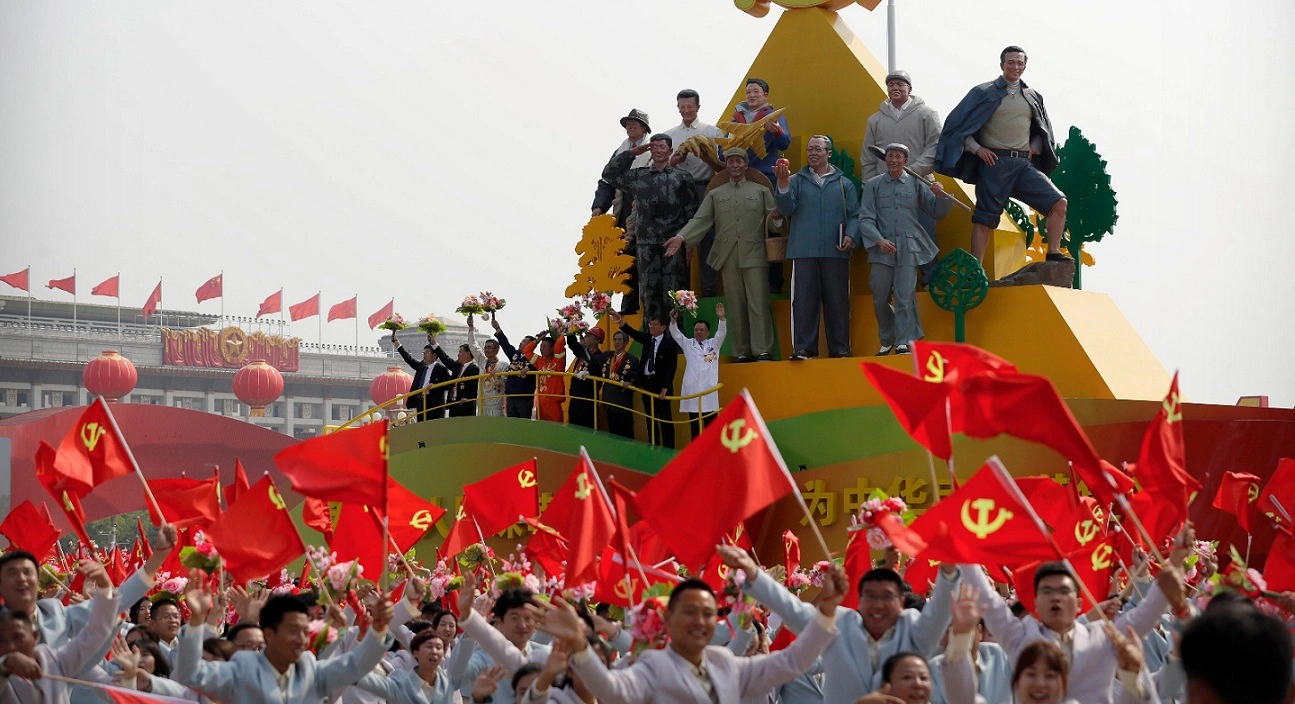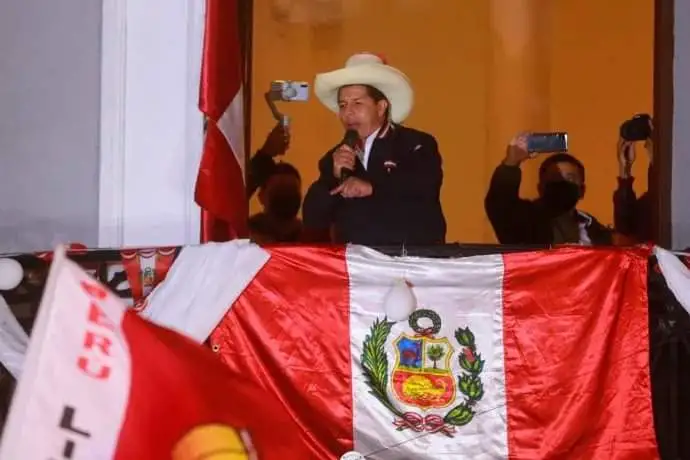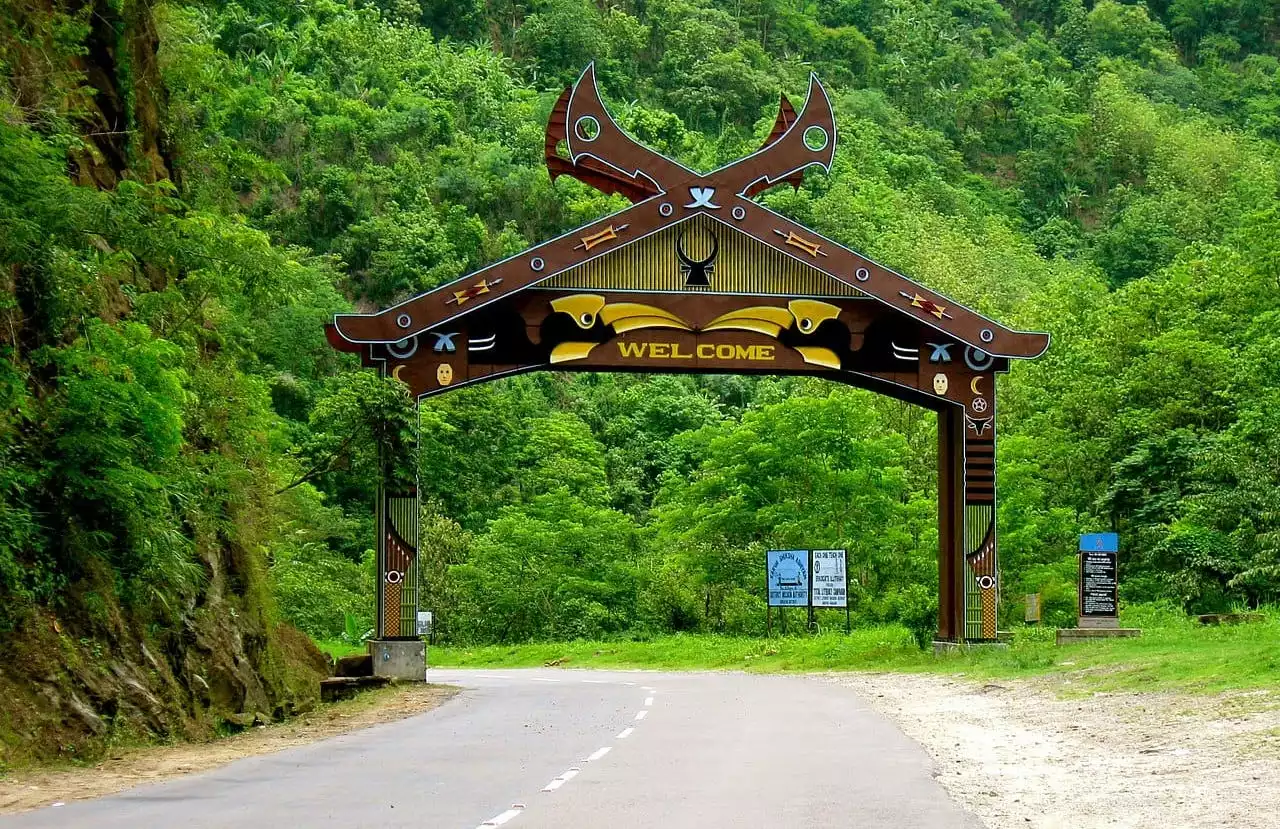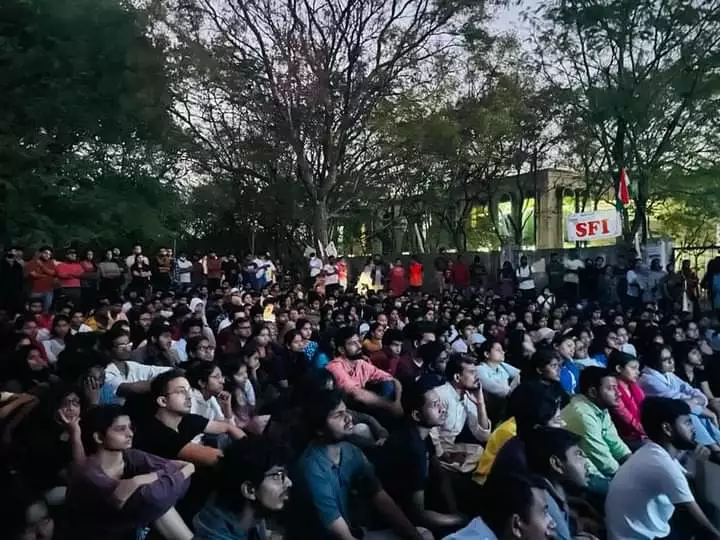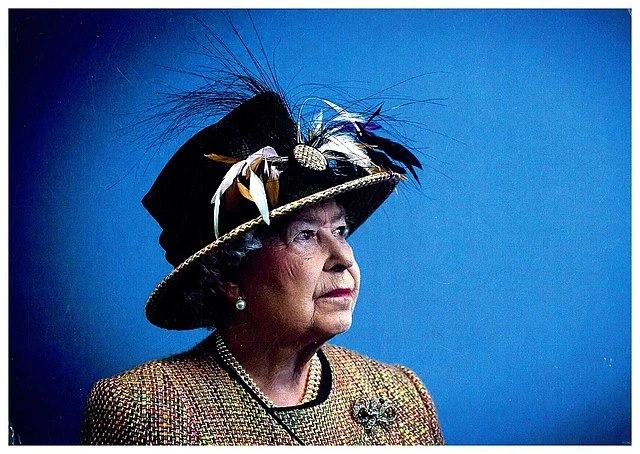In the 1990s and 2000s conventional Western wisdom was that China had long abandoned socialism. But by 2018, when president Xi Jinping lauded Marx as the greatest thinker of modern times at the closing speech of a 2-week celebration of his 200th anniversary and reaffirmed China’s commitment to his vision of communism, many on the left – and the right – were willing to take him seriously. I sat down to long-term expat Keith Lamb, a socialist from Scotland and commentator for the CGTN news agency, for an informal interview on life in China, its political system, its contradictions and its vision for the world.
What lead you to move to China in 2004? How do you support yourself out there, and where?
I finished at Glasgow University really wanted to continue studying. Learning a language seemed like a good thing and Chinese I considered the hardest so I chose that. I chose China not only because of the difficulty of the language but also because I saw it was developing and I really knew so little of the place. In 2004 my plan was to go over and work for a couple of years or two, master the language and then go somewhere else. I supported myself originally through teaching.
I was in a few places Shijiazhuang, Nanjing, Beijing but for most of the time in Xiamen, and life just took over. I opened up a Brazilian Jiujitsu school in Xiamen which I started as a socialist project. We taught students for free and if they wanted to donate money they could. The school ended up turning into a business, but it will never make anyone rich – it’s more of a very serious hobby.
Are you ‘free’ to have this conversation? In the West we are given the impression that all conversations are closely monitored, and critics of the government found out and punished. Are you allowed to say what you are aren’t allowed to talk about?
You can talk about anything you want - I've never found that to be a problem. In many ways I find it's actually more free because they don't have political correctness in the way we do in the UK. Publishing something in a paper though — that's another thing. There is all sorts of talk online. Everyone says conversations get deleted, but I've seen loads of slagging-off online — so far nothing I've said has been deleted, but I have had my comments deleted a few times before in the West on the Guardian no less. I'm not saying it's not a thing, obviously censorship does take place. Certain websites are blocked in China.
Topics themselves aren’t banned, it’s more how or where you talk about them. For example, in many universities and schools there will be a clause in the contract not to proselytize or talk about independence issues such as Tibet and Taiwan. Talking outside of class privately is not a problem. I have met large numbers of Americans who are in China for the purpose of converting people to Christianity.
And they aren’t sent to re-education camps?
No, they are not sent to re-education camps. They're usually well received because many Chinese people want to learn English and the missionaries tend to be very patient. But strictly speaking if they have signed a contract, usually there will be a clause not to do missionary work.
Were you politicised before you came to China?
I was. But I didn't know much about China back in 2004 —I had the same general opinions that the left has today. Typical “enlightened Westerner” complex that I knew better than the Chinese themselves. Sort of thing Westerners get after reading a book like Wild Swans. I assumed the people were unhappy with their government and I assumed support for the CCP was due to brainwashing or at least their closed media.
I think a lot of socialists in the West are idealists; they transpose their vision of socialism and how it should be achieved onto others – it's another form of Western domination. Because often Western socialists really have very little idea of the contradictions in China that are vastly different to the ones they have in their countries. Having said that, it's not that I don't think we shouldn't criticise it's just that rarely do I find it comes from a place of understanding.
So the Western narrative goes something like this:
‘Mao was a true believer, even more so than Stalin, and in his final years he tried to jump straight to a purer, classless communism, unleashing chaos with his Cultural Revolution to avoid the slide back to the market he saw was coming. It was a disaster and the pro-market side regained control, creating the modern-day, hyper-capitalist country, with the Communist Party in charge only to maintain their control and avoid the sticky end leaders like Ceaușescu came to.’
Does the everyday person understand or accept all this? Will they tell you - 'in the 60s we fought as Red Guards and questioned even the authority of the lowly school teacher for having a capitalist mentality, but after Mao we accepted we need to make China the cheapest place to produce everything from steering wheels to children's toys - to build up the resources for socialism tomorrow?'
Well they understand the politics I outlined above. They've fought the US twice in Korea and Vietnam so they are all too aware of the geopolitical and historical situation. In terms of the turn to market they accept it as a necessary dynamic. For many there is a lot of pressure, long working hours etc. But it is sold to them as an epoch rather than the end of history.
Up until about 2012 I was sceptical myself. For example, Deng said first they would develop the East of China - this happened but developing the West? That didn't seem to be happening (and it was hardly profitable to do so either). So myself like many Western Marxists believed perhaps China was just another neoliberal state.
From about 2012 (maybe much before actually) I saw some amazing changes in the West of China. One example I can think of is Yinchuan, a city in the West. It was dirt poor when I used to go – shacks everywhere, people obviously unable to take a regular shower, poor infrastructure. In 2012 the city it had transformed itself: the slums were gone, the place was clean, the people were clean. I travelled right across the West of China and Yinchuan wasn't the exception. I had to conclude that indeed the CCP had kept to their promise
"For many there is a lot of pressure - long working hours. But it is sold to them as an epoch rather than the end of history." How is it sold to them?
In their education, in their textbooks, they learn about Marx and “socialism with Chinese characteristics.” In Xi’s speeches, in the news – their socialist goals are not a secret, it’s discussed openly; they are given very concrete dates for 5 year plans, 10 year plans, 20 year plans. 2020 was the year they expected extreme poverty to be wiped out. If you asked me could this have been done in 2012, despite the progress I saw, I would have said no. But they achieved it on month ahead of schedule in November. 2030 is the year they expect to achieve a generally moderately wealthy society - maybe a level like Greece or Portugal.
In 2020 the alleviation of extreme poverty was a big topic. A friend of mine in the grassroots of the CCP who was a PE teacher at the first college I worked at was sent to the countryside to help. Cadres have been sent to villages to look at specific causes and methods for dealing with poverty. This really deals less with the workers and more with the peasants. Factory workers may not be rich but also they are not considered in the band of extreme poverty by Chinese standards. Often poverty alleviation has come through building roads to out of the way places. At times new housing has been built. Whereas 2030 is more about building a basic welfare state.
Can you talk a little about what you know of the Uyghur situation?
I first went to Xinjiang in 2016 - before that the only Uyghurs I met were street sellers and my students. The street sellers were unhappy with the CCP and some expressed desires for independence. They were always quite poor though, from southern Xinjiang.
From about 2014, suddenly there were large amounts of students arriving in Western China and I had many Uyghur students. Of course first thing after class I talked to them about was the situation in Xinjiang. To my surprise they did not have the same views as the street vendors. They were distinctly Uyghur, with their own language and obviously very proud of their identity, but mainly pro-China.
That led me to go there in 2016 to look for myself. What I found was a divided society. I travelled to several towns. Surprisingly to me, there were many Uyghurs that supported the Chinese state.
I had a taxi ride in a small town in Xinjiang and the taxi driver was very anti Han Chinese (not that there were many in this town). I asked him about the police as they were all Uyghurs. He answered that they were the dogs of the Han and they’d throw you in jail for waving a Xinjiang independence flag. It seemed strange to me that they could have Uyghur police - imagine if the police force in the North of Ireland during the Troubles were Catholics.
Then the taxi stopped and I arrived at the station. A Uyghur policeman asked to see my passport. I mentioned to him that he could pass for European he laughed and said to me “We're Chinese too though.” I had another ride in the capital of Xinjiang where I offended a Uyghur taxi driver by complementing his mandarin - he thought it was belittling. So the situation in Xinjiang is complex. There is definitely support for independence but as I've seen it also has an Islamist drive behind it.
I've spoken to Uyghur girls who are empowered by being part of a larger Chinese state. They certainly don't want to be part of a Caliphate and they even felt their parent’s restrictions on who they could marry was an intrusion into their freedom. Part of the problem was that people in the far West of Xinjiang felt they were being left behind, but as I saw there is a lot of development taking place now.
Of course there are ethnic tensions that are extremely complex, and there were the terrorist attacks at Kunming train station. I have a Han friend who lives in the capital of Xinjiang who told me that the Uyghurs went on the rampage killing hundreds of Han Chinese. He also said that they were getting a cash reward from a terrorist group for each killing. But when the Han rose up on the second night to get revenge the army closed the city down to protect the Uyghur communities. These are his words.
Of course, no doubt people are concerned of claims of 3 million in what is made out to be concentration camps, which are basically ridiculous claims. Considering there are only about 10 million Uyghurs in China and they have the highest birth rate we're being asked to believe pretty much every adult of working age is in a camp. If this was the case there would be a considerable refugee crisis on China's border.
I think those who believe the ridiculous figures need to remind themselves of what we did to Iraq based on claims of false weapons of mass destruction. We ended up with the Labour Party taking part in the biggest imperial crime of the 21st century. The propaganda machine is in full swing again now. Even the US Uyghur activist Rushan Abbas turned out to be a translator interrogating Uyghur prisoners at Guantanamo Bay.
Now to say there isn't a genocide or concentration camps doesn't mean to say Xinjiang is all fine and dandy. It would seem based on the research I've seen, about 100,000 people had to go to de-radicalisation centers which also taught attendees vocational skills. Now is this ideal? Absolutely not but it's certainly better than Western war on terrorism which has led to millions of deaths – and an increase in terrorist attacks.
We also have to keep in mind that terrorist attacks in Xinjiang, being next to Afghanistan, were far worse than anything we've seen in the West. Ultimately, certain forces in the West would like to turn Xinjiang into another Iraq or Afghanistan – at the very least the aim is to demonise China to justify any future conflict.
From a trade union organiser friend:
Recently a popular documentary was aired on Netflix entitled “American Factory”. It featured a Chinese company who had taken over a Detroit windscreen factory and which was engaging in low wages, shoddy work practices and intense union busting. The managers presiding over this system were brought to China where they admired the system of long working hours and lack of breaks and holidays for the workers who were filmed picking up broken glass with their bare hands. The local Communist Party branch was chaired by the brother of the billionaire capitalist who owned both factories.
When a system actively promotes and empowers the exploitation of workers on a global basis can it truly be called socialist?
Good question. And it highlights the contradictions in China well. Firstly, in China there are a lot of good laws that aren't always as strictly enforced as they should be. Some shoddy labour practices can be seen as a learning curve, others are due to the logic of capital accumulation. As is union busting (remember there are no independent trade unions in China).
On the other hand it is these practices that pulled in foreign capital and technology which Chinese development is built on. Of course I'm not defending it wholesale but – and this may sound callous – I’d rather the workers sweat to build socialism than die on the battlefield.
And no, I don't think this can be called socialism now - and the Chinese recognise this contradiction well; they don't say they are in the stage of socialism either. They call it the primary stage of socialism: basically, markets being guided by the state to build up the industrial and technological base.
For sure though, the long hours and exploitative labour pales in comparison to that of say the early days of British industrialisation, and certainly, China's labour force is in a better state than say its neighbour India. Of course, these sort of practices could and can undermine the goodwill of the workers and it could undermine the values of socialism as well as undermine the revolution.
Mao first of all went for a policy called “new democracy” - similar to Lenin’s New Economic Period. It is a return to two-step theory building socialism through the exploitative practices of the market first - if a country was already developed then this would be unnecessary. The CCP do feel they well-explored other methods though.
